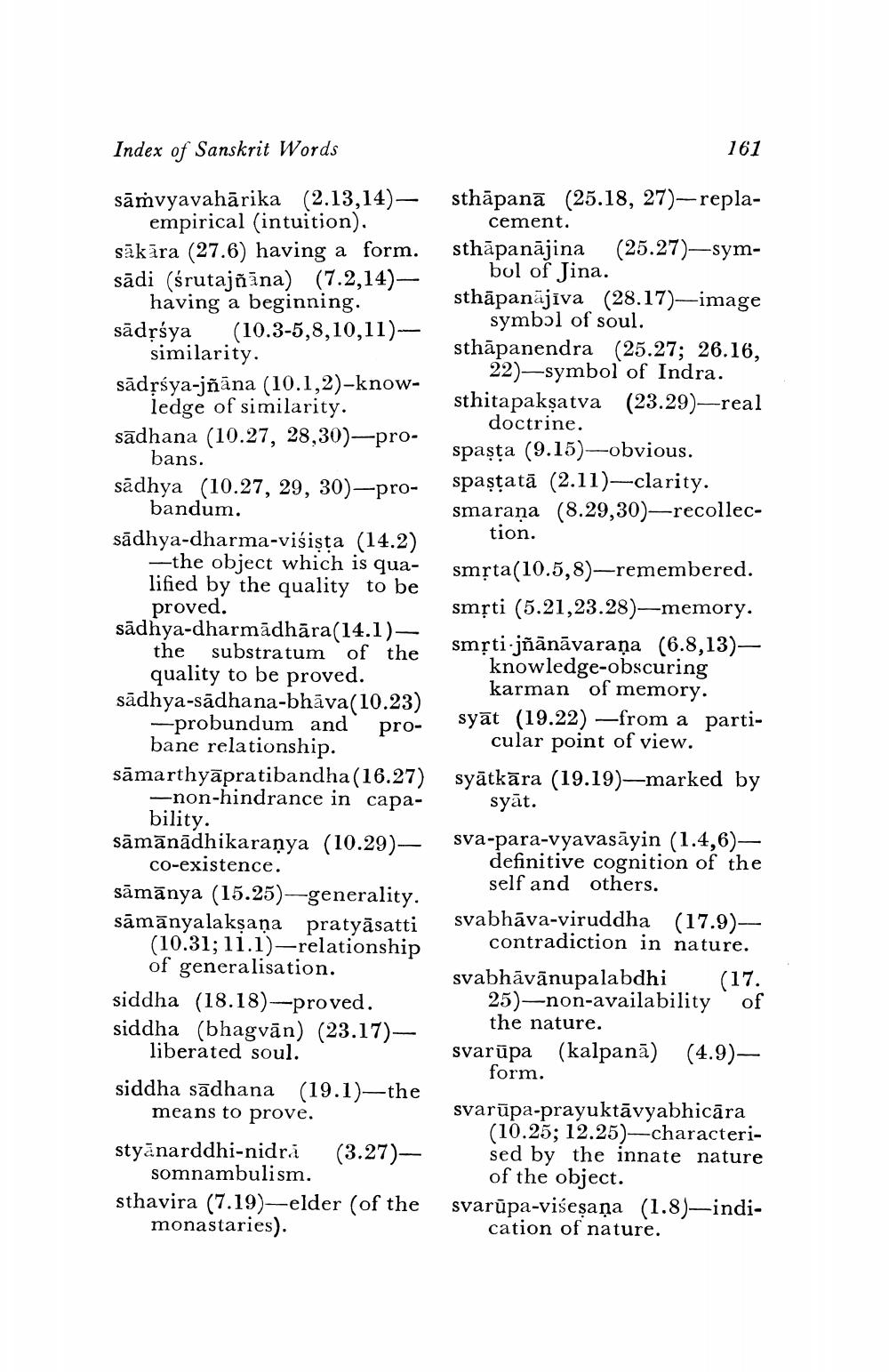________________
Index of Sanskrit Words
sāmvyavahārika (2.13,14)— empirical (intuition). sākāra (27.6) having a form. sādi (śrutajñāna) (7.2,14)— having a beginning.
(10.3-5,8,10,11)—
sādṛśya similarity.
sādṛśya-jñāna (10.1,2)-knowledge of similarity.
sadhana (10.27, 28,30)-probans.
sadhya (10.27, 29, 30)-probandum.
sadhya-dharma-visiṣṭa (14.2) -the object which is qualified by the quality to be proved.
sādhya-dharmādhāra(14.1)— substratum of the quality to be proved.
the
sadhya-sadhana-bhāva(10.23)
pro
-probundum and bane relationship. sāmarthyapratibandha (16.27) -non-hindrance in сара
bility. sāmānādhikaraṇya (10.29)co-existence.
sāmānya (15.25)—generality. sāmānyalakṣaṇa pratyāsatti (10.31; 11.1)-relationship of generalisation.
siddha (18.18)-proved. siddha (bhagvān) (23.17)— liberated soul.
(19.1)-the
(3.27)
sthavira (7.19)-elder (of the monastaries).
siddha sadhana
means to prove.
styänarddhi-nidră
somnambulism.
161
sthāpanā (25.18, 27)-repla
cement.
sthāpanājina (25.27)-symbol of Jina.
sthāpanājīva (28.17)-image symbol of soul.
sthāpanendra (25.27; 26.16, 22)-symbol of Indra.
sthitapakṣatva (23.29)-real doctrine.
spaṣṭa (9.15)-obvious. spaṣṭatā (2.11)-clarity. smarana (8.29,30)-recollection.
smṛta (10.5,8)-remembered. smrti (5.21,23.28)-memory. smrti jñānāvaraṇa (6.8,13)— knowledge-obscuring karman of memory. syat (19.22) from a particular point of view.
syātkāra (19.19)-marked by syat.
sva-para-vyavasayin (1.4,6)— definitive cognition of the self and others.
svabhāva-viruddha (17.9)contradiction in nature.
svabhāvānupalabdhi 25)-non-availability the nature.
svarupa (kalpana) (4.9)— form.
(17. of
svarupa-prayuktāvyabhicāra
(10.25; 12.25)-characterised by the innate nature of the object. svarupa-viseṣaṇa (1.8)-indication of nature.




